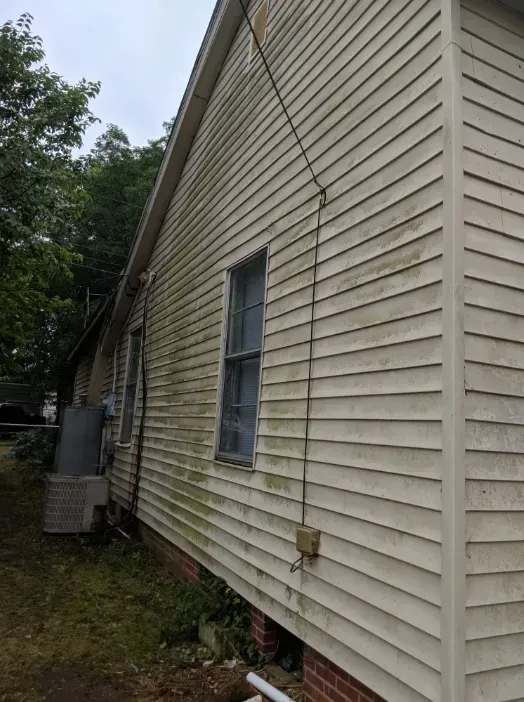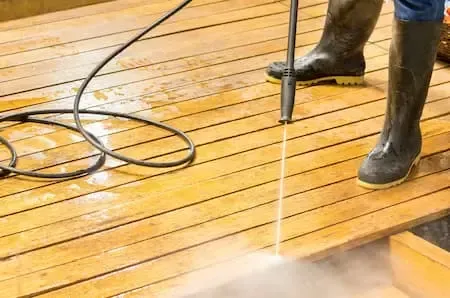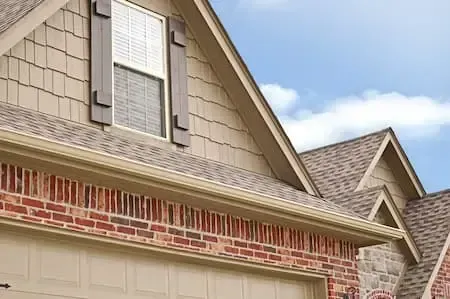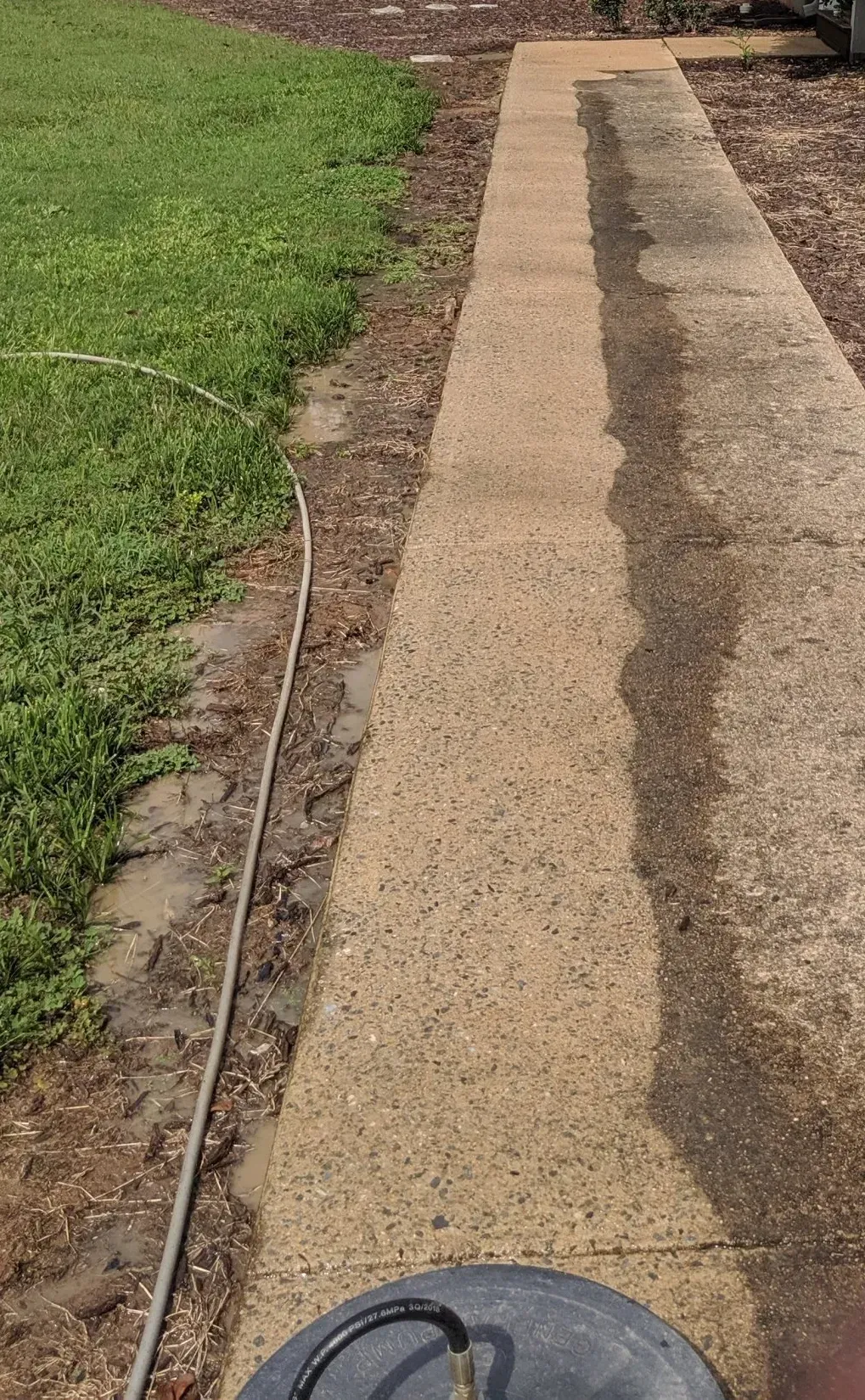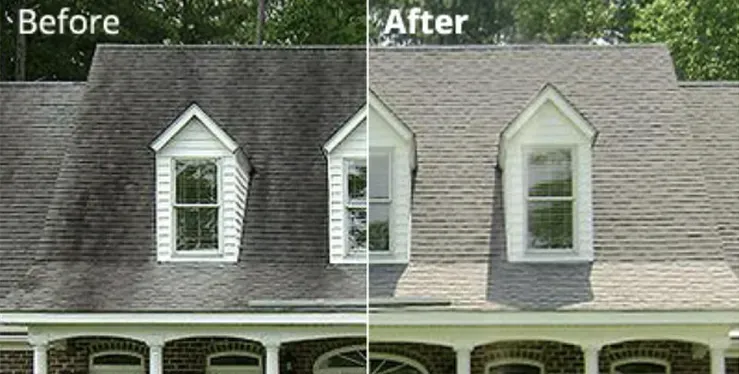How often should I clean my gutters?
It’s dirty work, but you simply have to do it. Gutter cleaning keeps your gutters and free of dead leaves, birds’ nests, spiders, mosquitoes, and other insects, and debris. It’s a fact of life when it comes to owning a home that it must be done.
And it’s especially true in Anderson SC and Greenville SC, where summer is so dry and fall, winter, and spring are so wet. Why? Because we tend to forget about our gutters in Anderson (and Greenville, and Sorry Carolina in general) until it’s too late.
Dry leaves, tree branches, pine needles, and other material can accumulate in your gutters during the dry summer and you won’t notice until your gutters start overflowing during the first big rain of the season. Or worse, you won’t notice at all.
Today I’ll answer a few questions many homeowners and property managers have about cleaning their gutters, including why it’s necessary, how often it’s necessary, and most importantly how to clean your gutters.
What Can Happen if You Don’t Clean Your Gutters?
It sounds like a simple question, but the reality is that unclean gutters can lead to many complex and costly problems. Let’s look at a few of them.
Leaky Gutters & Mold
If you don’t clean your gutters, the first problem you will encounter will be clogged gutters and downspouts leading to standing water collecting in your gutters and overflowing. As dead leaves decompose, the water in your gutters will become filthy and mold will start growing.
In our climate, mold and algae is common and can cause a host of health problems if it gets inside your house. And it’s tricky (and expensive) to thoroughly clean, so it’s best to stop mold before it starts.
Leaking Roofs & Basements
Replacing your roof is a major undertaking– even if you put a new roof on top of your existing roof. The best strategy is to get the most out of your current roof by protecting it from the elements.
If you put off cleaning your gutters, your roof can and will leak. Water that doesn’t drain to the ground can accumulate on the roof, soaking through shingles and causing significant damage.
This can cause damage to anything you have stored in your basement, as well as to your foundation itself. You might also damage your furnace, circuit breakers, and other utilities in your basement.
Cracked Foundations
A cracked foundation is a major headache for any homeowner. Repairs can be very costly. But an ounce of prevention is worth a pound of cure. By extending your downspouts away from your home (and making sure water is flowing through them), you’ll protect your foundation from cracks. Foundation cracks are caused by water damage and by expanding ice during the coldest part of the winter.
Bird Nest GutterBugs & Other Critters
Gutters are a magnet for insects, squirrels, birds, mice and other animals. Warm, moist decomposing leaves are a rich source of food for many pests and once they’ve settled into your gutters, their next stop will be inside your house.
If you discover birds or other wildlife, call your local animal control center for advice.
Driveway & Yard Damage
When it comes to your lawn and plants, too much water is just as bad as not enough. If your gutters aren’t draining water properly, water can pool up (even underground) killing delicate plants.
Too much water that isn’t draining properly can cause slick mold to grow on your driveway, or freeze into slippery ice during the winter. Both of these problems can lead to falls and potentially serious injuries, especially to kids and older adults.
How Can You Spot Damage From Unclean Gutters?
The best way to spot damage from unclean gutters is before it starts. A visual inspection of your gutters during the fall (before it starts raining) is a great place to start. If you’re not sure what to look for, or aren’t comfortable up on a ladder, a professional inspection can help.
Once the weather turns, here are a few warning signs you can look for inside of your house and in your yard:
- Pools of water on your lawn, near your foundation, or on your driveway. All of these are signals that water isn’t draining properly. It might also mean your downspouts aren’t connected properly.
- Dripping gutters or gutters which aren’t draining at all. If water isn’t draining smoothly, it probably means you’ve got a clog or a leak somewhere in your gutters.
- Water where it shouldn’t be. Are there drips inside your house? Pools of water in your basement? These are major warning signs: Your foundation or your roof could be at risk.
- Signs of animal life. Are you seeing bugs in your house? Hearing mice in your attic or walls? These critters could be nesting in clogged gutters.
How Often Should You Clean Your Gutters?
Like many other questions, the answer is, “it depends!” Many experts recommend cleaning your gutters at least twice a year– once in the early spring and once in the fall. But there are a few factors that might make you reconsider.
If you have pine trees growing above your house, consider inspecting your gutters every 3 months. The reason for this is because pine trees shed needles year-round (and they have a lot of needles to shed).
Do You Need to Replace Your Gutters?
Maybe. Depending on the type of gutters you have installed, you should be able to get at least 20 years out of them, assuming they’re properly installed and maintained.
Metal gutters last the longest– hopefully longer than 20 years. Cheaper, plastic or vinyl gutters won’t last as long and may need to be replaced sooner, especially if they get damaged.
Seamless gutters are more expensive but are less likely to leak.
Neglecting yearly maintenance or not installing them properly in the first place can shorten their lifespan dramatically. The only way to be sure if your gutters need to be replaced is to get an inspection from a roofer or gutter expert who you trust.
How Do You Clean Your Gutters?
Cleaning out gutters isn’t rocket science, but it can be a messy job.
We use a commercial vacuum system that cleans out everything inside the gutters including limestone from the roof. The tried and true method of cleaning gutters by hand is most effective without a commercial vacuum system. A but a high pressure hose can help clear out clogs in your downspouts, but it can also cause clogs and make the situation worse.
Here are a few tips to make the job easier, safer, and more effective:
- Wear proper protection. Wear work gloves and eye protection for your safety.
- Don’t just toss the gunk in your gutters on the ground! Put it in a garbage can or bag to be composted. Leaving it on the ground can attract insects.
- Seal any leaks you find. Use a high-quality sealant and make sure you give it enough time to cure.
- Pay extra attention to mold. A diluted solution of bleach and water in a spray bottle can be used to clean any mold you come across.
- Be safe. Whenever you’re working on a ladder or on your roof, there’s a chance of injury. Have someone help you, don’t overdo, and don’t do anything where you feel unsafe.
Need Help With Your Gutters?
It’s important to clean your gutters. While it’s a job you may be able to do yourself, you may sleep easier knowing an experienced professional has done the job right.
At Back 2 New Exterior Cleaning, we are experts at cleaning roofs and gutters throughout the Anderson SC and Greenville SC area. Contact us for a free estimate. We’ll be happy to come out and take a look at your gutters and see if there’s any damage which needs to be repaired.

